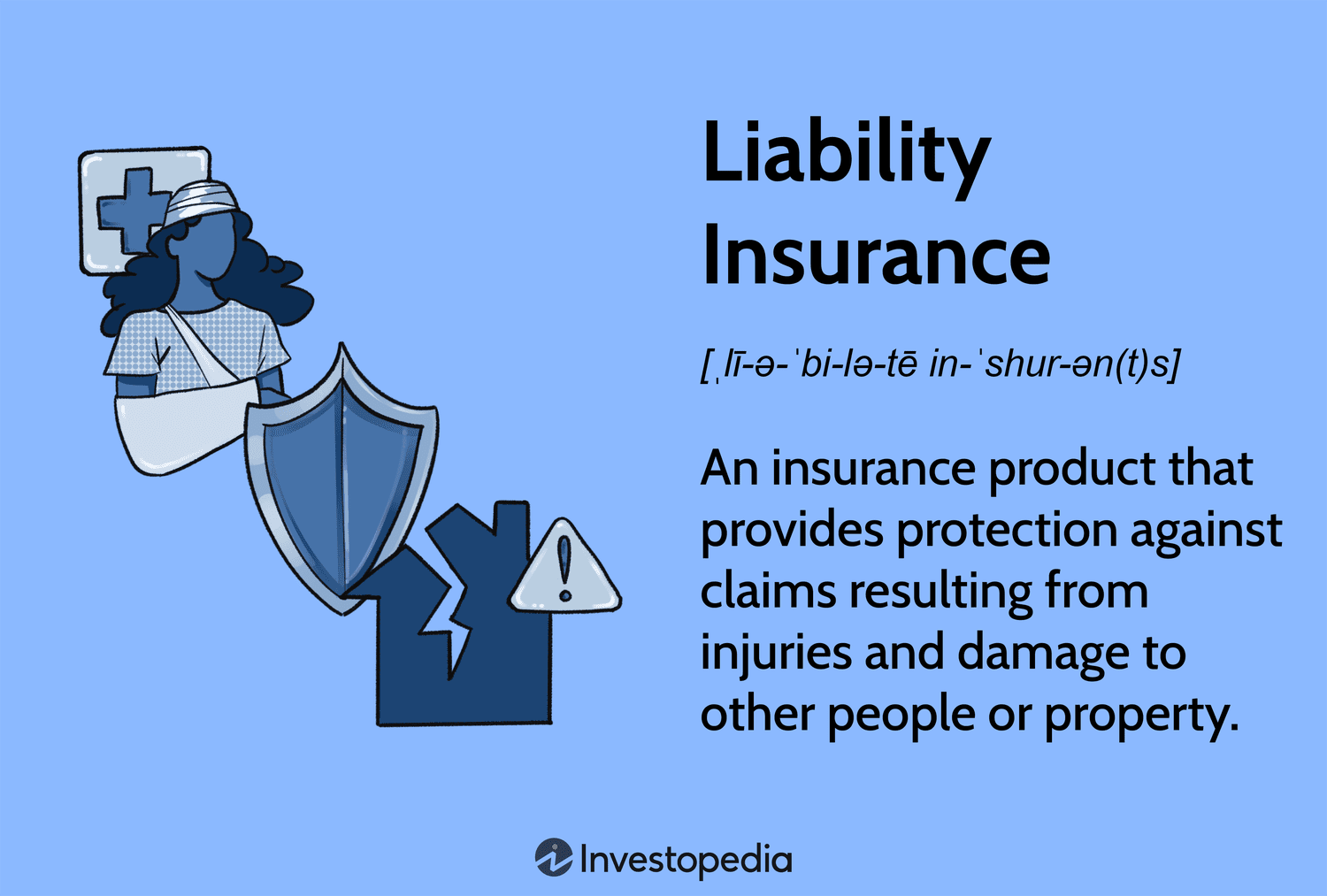Introduction
In a world where health is wealth, having access to affordable health insurance is paramount. Affordable Health Insurance in USA The United States, a country known for its innovation and advancements in healthcare, also grapples with the challenge of making healthcare accessible and affordable for its citizens. In this article, we’ll delve into the intricacies of Affordable Health Insurance in USA, exploring its significance, options, and key considerations.
The Importance of Affordable Health Insurance
Affordable Health Insurance in USA
Ensuring Financial Security Affordable Health Insurance in USA
Healthcare costs in the USA can be exorbitant. Without adequate insurance, a simple medical emergency can lead to financial catastrophe. Affordable health insurance provides a safety net, ensuring that individuals and families can access necessary medical care without facing crippling bills.
Promoting Preventive Care
Affordable Health Insurance in USA
Affordable health insurance encourages individuals to seek preventive care, Affordable Health Insurance in USA such as regular check-ups and screenings. This proactive approach to health not only saves lives but also reduces the overall burden on the healthcare system.
Types of Affordable Health Insurance
Affordable Health Insurance in USA
Employer-Sponsored Plans Affordable Health Insurance in USA
Many Americans receive health insurance through their employers. These plans often offer a range of coverage options at a lower cost than individual plans due to employer contributions.
Individual Marketplace Plans
The Affordable Care Act (ACA) established health insurance marketplaces where individuals and families can purchase coverage. Subsidies are available based on income, making these plans more affordable for low and middle-income households.
Medicaid and Medicare
Medicaid provides free or low-cost health coverage to eligible low-income individuals and families. Medicare serves seniors and certain disabled individuals. These government programs play a crucial role in ensuring access to affordable healthcare.
Key Considerations When Choosing Health Insurance
Coverage Options
Consider your medical needs when choosing a plan. Are you looking for comprehensive coverage or a plan that covers specific needs like maternity care or prescription drugs?
Premiums and Deductibles
Affordability extends beyond premiums. Evaluate deductibles, co-pays, and out-of-pocket maximums to get a comprehensive picture of costs.
Network Providers
Check if your preferred healthcare providers are in-network. Out-of-network care can be significantly more expensive.
Pre-existing Conditions
Under the ACA, insurers cannot deny coverage or charge higher premiums based on pre-existing conditions. Ensure your plan complies with this provision.
How to Save on Health Insurance
Shop Around
Compare different insurance plans to find the one that best suits your needs and budget. Online tools and insurance brokers can assist in this process.
Take Advantage of Subsidies
If you qualify for subsidies through the ACA, make sure to apply. These subsidies can substantially reduce your monthly premium.
Maintain Good Health
Living a healthy lifestyle can lower your healthcare costs in the long run. Many insurance plans offer wellness programs and discounts for healthy habits.
Additional Resources for Affordable Health Insurance
Healthcare.gov
Healthcare.gov is the official health insurance marketplace website established by the U.S. government. It’s a valuable resource for exploring your health insurance options, calculating subsidies, and comparing plans. The website also provides essential information on the ACA and how it impacts your coverage.
State-Specific Programs
Some states have their own health insurance marketplaces in addition to the federal marketplace. These state-run exchanges may offer additional plans and subsidies tailored to the needs of their residents. Be sure to check if your state has its own marketplace.
Non-Profit Organizations
Several non-profit organizations and advocacy groups offer assistance in navigating the complex world of health insurance. They can provide guidance on choosing the right plan, understanding your rights, and applying for subsidies if you qualify.
The Future of Affordable Health Insurance
The landscape of health insurance in the USA is continually evolving. Policymakers and healthcare providers are actively working to find innovative solutions to make healthcare more affordable and accessible for all Americans. As such, it’s essential to stay informed about changes in healthcare laws and regulations that may affect your coverage.
Accessing Affordable Health Insurance
Now, more than ever, affordable health insurance is within reach for many Americans. By utilizing the resources available, understanding your options, and carefully evaluating your needs, you can secure a health insurance plan that provides both financial security and peace of mind.
Remember, your health is an investment, and having the right insurance can make all the difference in ensuring you receive the care you need without breaking the bank.
Additional Resources for Affordable Health Insurance
Healthcare.gov
Healthcare.gov is the official health insurance marketplace website established by the U.S. government. It’s a valuable resource for exploring your health insurance options, calculating subsidies, and comparing plans. The website also provides essential information on the ACA and how it impacts your coverage.
State-Specific Programs
Some states have their own health insurance marketplaces in addition to the federal marketplace. These state-run exchanges may offer additional plans and subsidies tailored to the needs of their residents. Be sure to check if your state has its own marketplace.
Non-Profit Organizations
Several non-profit organizations and advocacy groups offer assistance in navigating the complex world of health insurance. They can provide guidance on choosing the right plan, understanding your rights, and applying for subsidies if you qualify.
The Future of Affordable Health Insurance
The landscape of health insurance in the USA is continually evolving. Policymakers and healthcare providers are actively working to find innovative solutions to make healthcare more affordable and accessible for all Americans. As such, it’s essential to stay informed about changes in healthcare laws and regulations that may affect your coverage.
Accessing Affordable Health Insurance
Now, more than ever, affordable health insurance is within reach for many Americans. By utilizing the resources available, understanding your options, and carefully evaluating your needs, you can secure a health insurance plan that provides both financial security and peace of mind.
Remember, your health is an investment, and having the right insurance can make all the difference in ensuring you receive the care you need without breaking the bank.
Understanding Health Insurance Terminology
Health insurance can be laden with technical jargon that might confuse the average person. To make informed decisions, it’s essential to grasp some fundamental terms:
Premium
A premium is the amount you pay to your insurance company for your health insurance plan. This payment is usually made on a monthly basis, whether you use healthcare services or not.
Deductible
Your deductible is the amount you must pay for healthcare services before your insurance plan starts to cover costs. Plans with higher deductibles often have lower premiums, but you’ll pay more out-of-pocket initially.
Copayment
A copayment, or copay, is a fixed amount you pay for a covered healthcare service, usually due at the time of service. For example, you might have a $20 copay for doctor’s visits.
Coinsurance
Coinsurance is a percentage of the cost of a covered healthcare service that you must pay after you’ve met your deductible. For instance, if you have a 20% coinsurance, you’ll pay 20% of the bill, and your insurance will cover the rest.
Out-of-Pocket Maximum
This is the maximum amount you’ll pay for covered services in a plan year. Once you reach this limit, your insurance covers 100% of your healthcare costs.
Network
A network includes doctors, hospitals, and other healthcare providers that have contracted with your insurance company to provide services at a reduced rate. Staying in-network usually results in lower costs.
Special Considerations for Affordable Health Insurance
Subsidies
Subsidies, available under the Affordable Care Act (ACA), help lower-income individuals and families afford health insurance. They can significantly reduce your monthly premium, making health insurance more accessible.
Catastrophic Health Insurance
If you’re under 30 or can prove financial hardship, you may be eligible for catastrophic health insurance. These plans have low premiums but high deductibles and are designed for emergencies.
Health Savings Accounts (HSAs)
HSAs allow you to save money tax-free for medical expenses. If you have a high-deductible health plan, you can contribute to an HSA and use it to cover qualified medical costs.
The Role of Brokers and Navigators
Insurance brokers and navigators can be invaluable resources when shopping for health insurance. Brokers can provide personalized advice, help you compare plans, and assist with the application process. Navigators are individuals or organizations trained to help you understand your options and enroll in coverage, often at no cost.
Long-Term Benefits of Health Insurance
Financial Protection
Health insurance not only shields you from immediate healthcare costs but also guards against significant financial setbacks in the long run. It can prevent you from accruing massive medical debts that could otherwise take years to pay off.
Access to Preventive Services
Most health insurance plans cover preventive services at no additional cost to you. These services can detect health issues early on, potentially saving your life and reducing future healthcare expenses.
Peace of Mind
Knowing that you have health insurance provides peace of mind, allowing you to focus on your health and well-being without the constant worry of potential financial ruin in the face of a medical emergency.
Navigating the Enrollment Process
Open Enrollment Period
The Open Enrollment Period typically occurs once a year and is the designated time to enroll in or make changes to your health insurance plan. Missing this window can limit your options, so mark your calendar to ensure you don’t miss it.
Special Enrollment Period
Certain life events, such as marriage, birth or adoption of a child, or loss of other coverage, can trigger a Special Enrollment Period. During this time, you can make changes to your health insurance plan outside of the regular enrollment period.
Medicaid and CHIP
Medicaid and the Children’s Health Insurance Program (CHIP) accept applications year-round. If you qualify for these programs, you can enroll at any time, as there is no limited enrollment period.
The Evolution of Healthcare Policy
Stay Informed
Healthcare policy in the United States is subject to change through legislative action. Staying informed about these changes is crucial to understanding how they may impact your health insurance options and costs.
Advocacy and Participation
Many advocacy groups and healthcare organizations offer opportunities for individuals to get involved in shaping healthcare policy. Your voice and engagement can help ensure that affordable health insurance remains a priority for policymakers.
Additional Resources for Health Insurance
Health Insurance Brokers
Health insurance brokers are experts in the field who can help you navigate the complex world of insurance. They can assess your needs and provide personalized recommendations, making the process of finding affordable coverage much more manageable.
Government Assistance Programs
In addition to Medicaid and CHIP, several federal and state programs offer help to those with limited income. Programs like the Supplemental Nutrition Assistance Program (SNAP) and the Low-Income Energy Assistance Program (LIHEAP) can alleviate financial burdens, allowing you to allocate more resources toward health insurance.
Nonprofit Organizations
Many nonprofit organizations focus on healthcare advocacy and providing support to individuals seeking affordable health insurance. They often offer educational resources and may even have grants or subsidies available for eligible individuals.
Staying Informed and Advocating for Change
Healthcare Literacy
Understanding the basics of health insurance, medical terminology, and the rights and responsibilities of policyholders is essential. Healthcare literacy empowers you to make informed decisions about your health and insurance.
Participating in Healthcare Discussions
Engaging in conversations about healthcare policy, both at the local and national levels, can help raise awareness about the importance of affordable health insurance. It also allows you to contribute to discussions that may lead to positive changes in the healthcare system.

Voting
The political landscape significantly influences healthcare policy. Participating in elections and voting for candidates who prioritize affordable and accessible healthcare can have a profound impact on the future of health insurance in the USA.
The Global Perspective
Contrasting International Healthcare Systems
It can be enlightening to explore how other countries manage healthcare. Many nations have universal healthcare systems that guarantee coverage for all citizens. While the US system is unique, understanding these alternatives can provide insights into potential reforms.
Telehealth and Technological Advancements
Recent advancements in telehealth and digital healthcare solutions are transforming the way healthcare is delivered. These innovations have the potential to make healthcare more efficient and affordable in the future.
The Impact of Lifestyle Choices
Healthy Lifestyle Incentives
Some health insurance plans offer incentives for healthy behaviors, such as regular exercise, smoking cessation, or participation in wellness programs. Taking advantage of these incentives can not only improve your health but also reduce your insurance costs.
Lifestyle-Related Conditions
Certain lifestyle choices, like smoking or excessive alcohol consumption, can lead to health conditions that may affect your insurability and premiums. Quitting smoking and adopting healthier habits can positively impact your health and your insurance rates.
Staying on Top of Changes
Annual Plan Reviews
It’s advisable to review your health insurance plan annually, even if you’re satisfied with it. Changes in your health, financial situation, or the plan itself can affect your coverage needs.
Monitoring Healthcare Costs
Keep track of your healthcare expenses throughout the year. Understanding your out-of-pocket costs can help you make informed decisions about your coverage and healthcare utilization.
Utilizing Preventive Services
Regular Check-ups
Preventive care, such as regular check-ups and screenings, can catch health issues early when they are easier and less expensive to treat. Many health insurance plans cover these services at no additional cost.
Vaccinations and Immunizations
Ensuring that you and your family are up-to-date on vaccinations and immunizations can prevent costly illnesses and hospitalizations. Many insurance plans cover these preventative measures.
Planning for Life Changes
Marriage, Divorce, and Family Planning
Life events like marriage, divorce, or starting a family can significantly impact your health insurance needs. Be prepared to update your coverage accordingly during these transitions.
Retirement
When approaching retirement, consider how your healthcare coverage will change. You may need to explore Medicare options or purchase supplemental insurance.
The Value of Professional Advice
Consulting an Insurance Agent
If you find the process of choosing health insurance overwhelming, consider working with an insurance agent or broker. They can provide personalized advice based on your unique circumstances.
Financial Advisors
Financial advisors can help you assess the financial aspects of your health insurance decisions. They can help you budget for premiums and out-of-pocket costs, ensuring your healthcare expenses align with your overall financial plan.
Navigating Health Insurance Costs
Flexible Spending Accounts (FSAs)
Some employers offer FSAs, which allow you to set aside pre-tax dollars to cover medical expenses not covered by insurance. This can include copayments, deductibles, and even some over-the-counter medications.
Health Reimbursement Arrangements
HRAs are employer-funded accounts that can help you pay for qualified medical expenses. They are often used in conjunction with high-deductible health plans (HDHPs).
Reviewing EOB Statements
When you receive an Explanation of Benefits (EOB) statement from your insurer, review it carefully. It details the costs of services and how they were covered. It’s an excellent way to ensure you’re not being billed for services that should be covered by your insurance.
Managing Prescriptions and Medications
Generic Medications
Whenever possible, opt for generic versions of prescription medications. They are typically more affordable and provide the same therapeutic benefits as brand-name drugs.
Pharmacy Discounts
Many pharmacies offer loyalty programs or discount cards that can significantly reduce the cost of prescription medications. It’s worth exploring these options to save on healthcare expenses.
Mail-Order Pharmacies
Consider using a mail-order pharmacy for maintenance medications. They often provide discounts for purchasing medications in larger quantities, reducing your overall costs.
Staying Informed About Changes
Plan Changes
Be aware that health insurance plans can change from year to year. Premiums, deductibles, and coverage options may be adjusted. Review your plan’s Annual Notice of Change (ANOC) to understand any upcoming alterations.
Life Changes
Report any significant life changes to your insurance provider promptly. This includes changes in income, marital status, or the birth of a child. These events may affect your eligibility for subsidies or other assistance programs.
Advocating for Your Health
Preventive Care
Take advantage of preventive care services offered by your insurance plan. Regular check-ups and screenings can catch health issues early, potentially saving you from more extensive and costly treatments down the line.
Appeals and Grievances
If you disagree with a coverage decision or have a grievance with your insurance provider, don’t hesitate to file an appeal. Insurance companies are required to have a process for addressing these concerns.
The Future of Healthcare
Healthcare Innovations
Stay informed about emerging healthcare innovations. Technologies like telemedicine, wearable health devices, and personalized medicine are rapidly changing the healthcare landscape and may impact the cost and delivery of care.
Advocacy and Policy
Consider becoming an advocate for healthcare policy reform. Your experiences and insights can help shape the future of healthcare in the USA, making it more affordable and accessible for all.

Considering Health Savings Accounts (HSAs)
Tax Advantages
HSAs offer tax benefits, including tax-deductible contributions and tax-free withdrawals for qualified medical expenses. These accounts can be a valuable tool for managing healthcare costs.
Investment Opportunities
Many HSAs allow you to invest your contributions, potentially growing your healthcare savings over time. This can provide an additional source of funds for future medical expenses.
Specialized Coverage Options
Long-Term Care Insurance
Long-term care insurance helps cover the cost of extended medical care, such as nursing home care or home health care. It can be a wise investment, especially as you approach retirement age.
Critical Illness Insurance
Critical illness insurance provides a lump-sum payment if you’re diagnosed with a specified critical illness, such as cancer or heart disease. This money can help cover medical expenses and other costs during a challenging time.
Staying Proactive About Health
Health and Wellness Programs
Many health insurance plans offer wellness programs that provide resources and incentives for healthy living. Participating in these programs can lead to reduced premiums or other benefits.
Telehealth Services
Telehealth services have become increasingly popular and accessible. They can save time and money by allowing you to consult with healthcare professionals remotely, reducing the need for in-person office visits.
Understanding Health Insurance for Travel
Travel Insurance
If you’re planning to travel domestically or internationally, consider purchasing travel insurance that includes health coverage. This can protect you from unexpected medical expenses while away from home.
Medicare for Travelers
If you’re eligible for Medicare and plan to travel, it’s essential to understand how your coverage works outside your home state. Some Medicare plans may offer limited coverage when traveling.
Keeping Records and Documentation
Billing and Medical Records
Maintain organized records of medical bills, explanations of benefits, and medical records. This documentation can be invaluable if you need to dispute a claim or verify coverage.
Communication with Providers
Stay in communication with your healthcare providers about your insurance coverage. They can help you understand costs, recommend in-network specialists, and assist with pre-authorization when needed.
Reviewing Your Financial Health
Emergency Funds
Building and maintaining an emergency fund can provide a financial cushion in case of unexpected medical expenses or lapses in coverage.
Budgeting for Healthcare
Include healthcare costs in your budget. Knowing your expected expenses can help you manage your finances effectively.
Navigating Healthcare Billing
Reviewing Medical Bills
Always carefully review medical bills for accuracy. Errors are not uncommon, and addressing them promptly can prevent unnecessary financial strain.
Negotiating Medical Bills
If you’re facing medical bills that you cannot afford, don’t hesitate to negotiate with healthcare providers or billing departments. Many providers are willing to work out payment plans or offer discounts to patients in financial distress.
Seeking Free or Low-Cost Clinics
If you’re uninsured or facing financial difficulties, free or low-cost clinics can be a lifeline. These facilities provide essential healthcare services at reduced rates or no cost, ensuring you receive necessary care regardless of your financial situation.
Financial Assistance Programs
Many hospitals and healthcare organizations offer financial assistance programs to help individuals and families with limited income cover medical expenses. These programs can provide relief when facing substantial bills.
Understanding the Role of Insurance Agents
Insurance agents can be valuable allies in your search for affordable health insurance. They have in-depth knowledge of the insurance market and can help you navigate the available options, ensuring you find the best plan for your needs and budget.
Prioritizing Preventive Care
Preventive care is not only a cost-effective approach to healthcare but also a crucial one for maintaining your well-being. By attending regular check-ups, screenings, and following your doctor’s advice, you can often catch health issues early, avoiding more extensive and expensive treatments.
Building a Support Network
Navigating the world of health insurance can be complex, and you don’t have to do it alone. Seek advice and support from friends, family members, or support groups who have experience with health insurance challenges. Their insights and guidance can be invaluable.
Leveraging Telemedicine for Convenience
Telemedicine has gained significant traction, especially in recent years. It offers a convenient way to consult with healthcare professionals remotely, reducing the need for in-person visits. Many insurance plans now include telehealth services, making it more accessible and cost-effective for routine healthcare needs.
Staying Informed About Prescription Drug Coverage
Prescription drug coverage can be a substantial part of your healthcare expenses. Understanding your plan’s formulary (list of covered drugs) and seeking generic alternatives when possible can help you manage these costs effectively.
Health and Wellness Apps
Consider using health and wellness apps to track your fitness, nutrition, and overall well-being. Some insurance plans even offer incentives or rewards for using these apps to promote healthy living.
Estate Planning and Healthcare Directives
As part of your overall financial planning, consider drafting healthcare directives and discussing end-of-life care with your loved ones. This can ensure your healthcare wishes are known and respected, potentially avoiding unnecessary medical expenses.
Reviewing Your Health Insurance Needs Regularly
Your healthcare needs may change over time due to life events, such as marriage, the birth of a child, or retirement. Regularly reviewing your health insurance coverage and adjusting it as needed can help you stay adequately protected.
Exploring Catastrophic Coverage for Young Adults
Young adults under 30 may benefit from catastrophic health insurance plans. These plans have low monthly premiums but high deductibles and are designed to provide essential coverage in emergencies.
Sharing Healthcare Expenses
Healthcare sharing ministries are nonprofit organizations where members share medical expenses. While not insurance, they can offer an alternative way to manage healthcare costs for individuals who meet specific criteria.
Exploring Health Savings Accounts (HSAs) Further
Triple Tax Benefits
HSAs offer a unique set of triple tax benefits: contributions are tax-deductible, earnings grow tax-free, and withdrawals for qualified medical expenses are also tax-free. Maximizing your contributions to an HSA can significantly bolster your ability to manage healthcare costs.
Portability
Unlike Flexible Spending Accounts (FSAs), HSAs are portable. This means you can keep your HSA account even if you change jobs or insurance plans. The funds you contribute remain available for qualified medical expenses throughout your lifetime.
Avoiding Medical Debt
Seeking Financial Assistance
If you find yourself facing overwhelming medical bills, don’t hesitate to seek financial assistance from hospitals, charitable organizations, or government programs. Many options are available to help individuals facing financial hardship due to medical expenses.
Payment Plans
Healthcare providers often offer payment plans to help you manage your bills over time. These plans can be an effective way to avoid medical debt and ensure that you can access necessary care.
Understanding Medicare and Medicaid
Medicare
Medicare is a federal health insurance program primarily for individuals aged 65 and older, but it can also cover some younger people with disabilities. Understanding the different parts of Medicare (Part A, Part B, Part C, and Part D) and when to enroll is crucial for retirees.
Medicaid
Medicaid is a state and federally funded program designed to provide health coverage for low-income individuals and families. Eligibility and benefits vary by state, so it’s essential to research the specific requirements in your area if you believe you may qualify.
Planning for Retirement
Long-Term Care Insurance
Long-term care insurance can be a wise investment for retirement planning. It helps cover the costs of extended care, such as nursing homes or in-home care, which can otherwise deplete your retirement savings.
Medicare Supplemental Insurance
Medigap plans can fill the gaps in your Medicare coverage, such as copayments and deductibles. Understanding your options for Medigap plans can help ensure comprehensive coverage during retirement.
Continuing Education and Advocacy
Healthcare Advocacy
Becoming an advocate for healthcare reform and affordable insurance options is a powerful way to effect change. Joining advocacy groups and staying informed about legislative developments can make a difference in the broader healthcare landscape.
Lifelong Learning
Healthcare is a constantly evolving field. Continuously educating yourself about new treatments, preventive care measures, and the latest medical technologies can empower you to make informed healthcare decisions.
Final Thoughts (Your Health, Your Future)
In the complex and ever-changing world of health insurance, remember that your health and well-being are at the heart of every decision you make. Whether you’re selecting a plan, seeking medical care, or planning for retirement, prioritize your health while considering the financial implications.
Your health insurance choices, financial planning, and advocacy efforts can shape not only your future but also the broader landscape of healthcare in the USA. Embrace these insights and strategies, and you’ll be better equipped to navigate the path to affordable and comprehensive health coverage.
Evaluating Specialized Health Insurance
Vision and Dental Coverage
While many health insurance plans include basic vision and dental coverage, they may not cover all services. Consider purchasing separate vision and dental insurance if these are important to you, especially if you have specific needs or anticipate high costs.
If you’re a frequent traveler or planning an extended trip, explore specialized travel insurance plans that provide comprehensive medical coverage abroad. These plans can protect you from unexpected medical expenses while away from home.
Exploring Cost-Sharing Options
Health Savings Accounts (HSAs)
If you have a high-deductible health plan (HDHP), contributing to an HSA can help you save for future medical expenses while enjoying tax advantages. HSAs are often considered one of the most tax-efficient ways to save for healthcare costs.
Flexible Spending Accounts
FSAs allow you to set aside pre-tax dollars to cover qualified medical expenses. While they are similar to HSAs, FSAs typically do not have the same portability, so it’s important to plan your contributions carefully.
Managing Mental Health Coverage
Mental Health Parity
Under the Mental Health Parity and Addiction Equity Act (MHPAEA), insurance plans must provide equal coverage for mental health and substance use disorder services. Ensure your plan complies with these regulations if you require mental health support.
Teletherapy Services
Many health insurance plans now cover teletherapy services for mental health counseling. These virtual sessions can be convenient and cost-effective for individuals seeking mental health support.
Understanding Preventive Care
Wellness Programs
Take advantage of wellness programs offered by your insurance plan. These can include resources, incentives, and discounts for services that promote a healthy lifestyle, such as gym memberships or smoking cessation programs.
Preventive Screenings
Ensure you’re up to date with recommended preventive screenings based on your age and gender. Many insurance plans fully cover these screenings as part of their preventive care services.
Preparing for End-of-Life Care
Advance Directives
Consider creating advance directives, such as a living will or a durable power of attorney for healthcare. These documents outline your medical preferences and appoint a trusted individual to make healthcare decisions on your behalf if you cannot.
Palliative Care and Hospice
Understand the coverage and options available for palliative care and hospice services. These services can provide comfort and support for individuals with serious illnesses or those nearing the end of life.
Conclusion (Empowering Your Healthcare Journey)
Affordable health insurance in the USA is a puzzle with many pieces, each requiring thoughtful consideration. As you continue to navigate this complex landscape, remember these essential principles:
Coverage Customization: Tailor your insurance plan to your unique needs and priorities, considering specialized coverage options.
Financial Wellness: Leverage tax-advantaged accounts like HSAs and FSAs, and actively manage your healthcare expenses to protect your financial well-being.
Mental Health Matters: Prioritize mental health coverage and access to teletherapy services for comprehensive well-being.
Prevention is Key: Embrace preventive care, wellness programs, and screenings to stay ahead of potential health issues.
End-of-Life Planning: Prepare for end-of-life care decisions with advance directives and a clear understanding of palliative and hospice care.
By embracing these principles and continuing to educate yourself about healthcare options, you can navigate the complexities of health insurance in the USA with confidence, ensuring that your health and peace of mind remain well-balanced.
Conclusion
Affordable health insurance in the USA is not just a luxury but a necessity. It ensures financial security, promotes preventive care, and grants peace of mind to individuals and families. Understanding the types of insurance available and considering key factors when choosing a plan are essential steps towards securing affordable healthcare.
FAQ
- What is the Affordable Care Act (ACA)?
The Affordable Care Act, often referred to as Obamacare, is a comprehensive healthcare reform law in the USA. It aimed to make healthcare more accessible and affordable for Americans through various provisions, including the establishment of health insurance marketplaces and the expansion of Medicaid. - Can I change my health insurance plan during the year?
In most cases, you can only change your health insurance plan during the annual Open Enrollment Period. However, certain life events, such as marriage, the birth of a child, or loss of other coverage, may qualify you for a Special Enrollment Period. - Are there penalties for not having health insurance in the USA?
Under the ACA, there used to be penalties for not having health insurance, known as the individual mandate. However, as of 2019, the penalty has been reduced to $0, effectively eliminating this requirement. - How do I apply for Medicaid?
You can apply for Medicaid through your state’s Medicaid program. Eligibility criteria and the application process may vary by state, so it’s essential to check your state’s Medicaid website or contact a local Medicaid office for guidance. - What is a Health Savings Account (HSA)?
A Health Savings Account (HSA) is a tax-advantaged savings account designed for individuals with high-deductible health plans (HDHPs). Contributions to an HSA are tax-deductible, and the funds can be used for qualified medical expenses, making it a valuable tool for saving on healthcare costs.
 Insu Edu Tech Insurance, Education & Technology
Insu Edu Tech Insurance, Education & Technology




